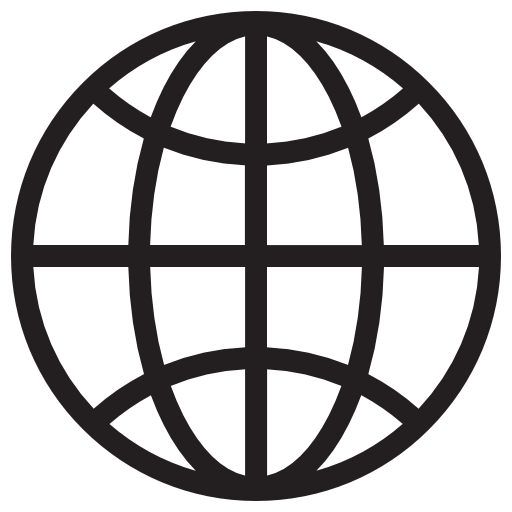Navigating DeFi Protocols: Selecting the Ideal Development Framework
Feltöltés dátuma:
Decentralized Finance (DeFi) has emerged as a groundbreaking force in the financial world, offering innovative solutions for banking, lending, trading, and asset management. As interest in DeFi continues to soar, developers are presented with a plethora of options when it comes to building DeFi protocols. Choosing the right development framework is crucial for ensuring scalability, security, and interoperability. In this article, we delve into the key considerations and factors to help developers navigate the landscape of DeFi protocol development frameworks.
Understanding DeFi Development Frameworks:
DeFi development frameworks provide developers with the tools, libraries, and infrastructure needed to build, deploy, and maintain decentralized applications (DApps) and protocols. These frameworks offer a range of features and functionalities tailored to the unique requirements of DeFi projects, including smart contract development, blockchain integration, and user interface design.
Key Considerations for Choosing a DeFi Development Framework:
When evaluating DeFi development frameworks, developers should consider the following factors:
- Security: Security is paramount in DeFi protocols, given the high stakes involved in managing and transferring financial assets. Look for development frameworks that prioritize security features such as formal verification, auditability, and robust authentication mechanisms to mitigate the risk of vulnerabilities and exploits.
- Scalability: DeFi protocols must be capable of handling a high volume of transactions and users without experiencing congestion or latency issues. Choose development frameworks that offer scalability solutions, such as layer 2 scaling solutions, sharding, or sidechains, to ensure optimal performance and user experience.
- Interoperability: Interoperability is essential for enabling seamless integration and communication between different DeFi protocols, platforms, and blockchain networks. Opt for development frameworks that support interoperability standards, such as cross-chain compatibility and decentralized oracle networks, to facilitate data sharing and asset interoperability.
- Community Support: A vibrant and active developer community can provide invaluable resources, support, and collaboration opportunities for DeFi projects. Consider development frameworks with a strong community presence, extensive documentation, and developer-friendly tools to streamline the development process and accelerate project growth.
- Regulatory Compliance: Regulatory compliance is a complex and evolving landscape in the DeFi space, with legal and regulatory considerations varying across jurisdictions. Choose development frameworks that offer compliance solutions, such as identity verification, Know Your Customer (KYC) procedures, and regulatory reporting tools, to ensure compliance with applicable laws and regulations.
Popular DeFi Development Frameworks:
Several DeFi development frameworks have gained prominence within the developer community:
- Ethereum: Ethereum remains the leading blockchain platform for DeFi development, offering a robust ecosystem of tools, libraries, and infrastructure for building decentralized applications and protocols. Ethereum's support for smart contracts and decentralized finance standards, such as ERC-20 and ERC-721, makes it a popular choice for DeFi projects.
- Binance Smart Chain (BSC): Binance Smart Chain is a blockchain platform compatible with Ethereum Virtual Machine (EVM), offering low transaction fees and fast confirmation times compared to Ethereum. BSC's interoperability with Ethereum and support for popular DeFi protocols like PancakeSwap and Venus make it an attractive option for developers looking to leverage existing Ethereum-based DeFi solutions.
- Polkadot/Substrate: Polkadot is a multi-chain blockchain platform that enables interoperability between different blockchains through its relay chain architecture. Substrate is a modular framework for building custom blockchain networks compatible with the Polkadot ecosystem. Polkadot/Substrate's support for interoperability, scalability, and customizability makes it well-suited for building DeFi protocols with unique requirements.
Choosing the right development framework is a critical decision for developers embarking on DeFi projects. By considering factors such as security, scalability, interoperability, community support, and regulatory compliance, developers can select a framework that aligns with their project goals and requirements. Whether building on Ethereum, Binance Smart Chain, Polkadot/Substrate, or other blockchain platforms, developers have a wealth of options at their disposal to innovate and contribute to the vibrant ecosystem of decentralized finance.
Sign up for our newsletter!
Sign up for our newsletter to be the first to know about our latest projects and technological innovations.
Predicting Trends and Demand: The Power of AI in Inventory Forecasting
Inventory management is a critical aspect of any business, influencing costs, customer satisfaction, and overall profitability. Traditionally, inventory forecasting relied on manual methods and historical data analysis, often resulting in inaccuracies and inefficiencies. However, with the advent of Artificial Intelligence (AI) and machine learning, businesses now have powerful tools at their disposal to predict trends and demand with unprecedented accuracy. In this article, we'll explore the transformative power of AI in inventory forecasting and how businesses can leverage these technologies to optimize their supply chain operations.
Navigating Regulatory Compliance and Legal Considerations with Utility NFTs
As utility Non-Fungible Tokens (NFTs) gain traction across various industries, it's crucial for developers, businesses, and users to navigate the legal landscape and ensure compliance with regulatory requirements. While utility NFTs offer innovative solutions for ownership, access control, and digital asset management, they also pose legal challenges related to intellectual property rights, securities regulations, data privacy, and consumer protection. In this article, we'll explore the key legal considerations and regulatory compliance issues associated with utility NFTs and provide guidance on how to navigate them effectively.

















